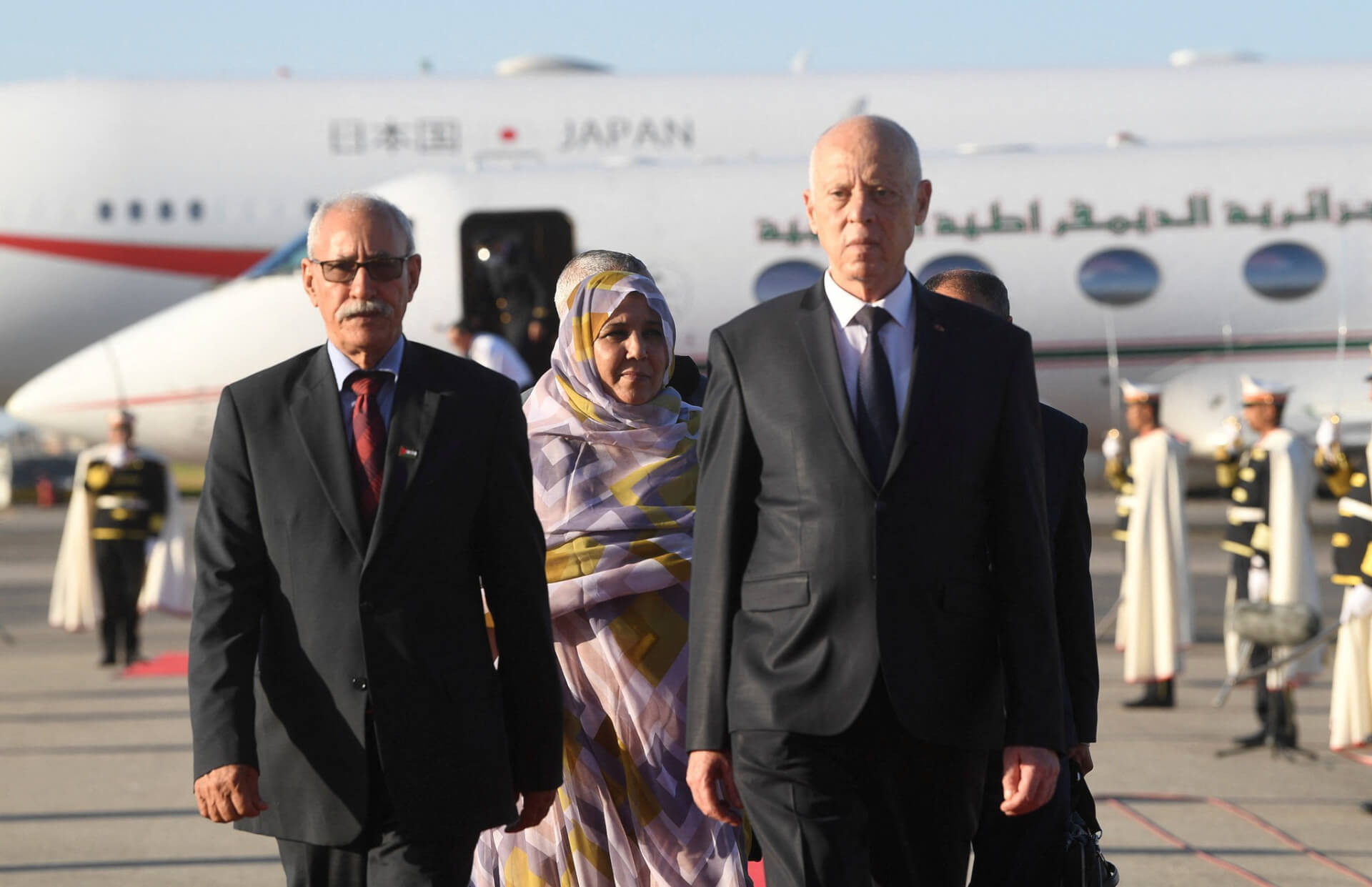Morocco has recalled its ambassador to Tunisia after Tunisian President Kais Saied met with Polisario Front leader Brahim Ghali, who seeks liberate Western Sahara from Rabat’s control. Saied invited Ghali to attend a Japanese development summit for Africa in Tunis.
On Friday, the Moroccan foreign ministry issued a statement condemning Saied’s decision to invite Ghali to attend the Tokyo International Conference on African Development (TICAD) in Tunis, declaring that it has decided to “immediately recall” its ambassador to Tunis in protest.
Saied’s action “is a serious and unprecedented act, which deeply offends the feelings of the Moroccan people and its forces,” the statement said. The ministry noted that Said’s move was “hostile and detrimental,” especially since both countries have always maintained “brotherly relations.” However, it emphasised that Morocco’s decision not to participate in TICAD “does not affect, in any way, the strong and intact ties between the Moroccan and the Tunisian peoples.”
BREAKING: The Saharwi President, Brahim Ghali, was received today by the Tunisian President, Kaïs Saied, ahead of the TICAD summit taking place in Tunis. Morocco has reportedly pulled its ambassador out of Tunis after the meeting took place. #WesternSahara pic.twitter.com/bNDDdwPOlS
— SAHARAWI VOICE (@SAHARAWIVOICE) August 26, 2022
Tunisia retaliated by recalling its envoy to Rabat the following day and rejected Moroccan claims of hostility. Tunis said it is “neutral” regarding the Western Sahara dispute and Rabat’s reaction was “unacceptable” since the decision to invite Ghali does not violate international law.
The ministry added Tunisia was bound to invite Ghali because the Sahrawi Arab Democratic Republic (SADR), a nation-state proclaimed by the Polisario Front in 1976, is a member of the African Union (AU). Moreover, it noted that Morocco was overreacting, since SADR representatives participated in the previous two editions of TICAD. “There are no logical reasons justifying the Moroccan statement, especially as Tunisia showed compliance with procedures in relation to the organisation of events,” the statement read.
Morocco, however, claimed that Tunisia’s statement is full of “innacuracies and untruths.” In a separate statement, the Moroccan foreign ministry said, “TICAD is not a meeting of the AU” but only a “framework for partnership between Japan and African countries.” Hence, the rules of the AU do not apply in this case, Rabat asserted.
Tunisia risks relations with Morocco because it views its ties with Algeria as more crucial
— Samuel Ramani (@SamRamani2) August 27, 2022
Saied met with Tebboune in July, as Tunisia tries to secure greater access to Algeria's energy exports. Tunisia is among Africa's most affected countries by Ukraine war-related inflation
It also mentioned that only those countries that received an invitation co-signed by the leaders of Japan and Tunisia could participate in the summit, claiming that Japan did not invite the SADR. “The statement of Tunisia shows its inaccuracy on the African position. This position has always been based on an inclusive participation of African states, not members of the AU,” Tunis noted.
Japan criticised Tunisia for the decision to invite Ghali. “TICAD is a forum for discussion on the development of Africa,” the Japanese delegation said. “The presence of any entity which Japan does not recognize as a sovereign state at TICAD meetings […] does not affect the position of Japan regarding the status of this entity,” the statement clarified.
Moroccan organisations have already started boycotting upcoming events in Tunisia. For instance, the Moroccan Karate federation and women’s basketball team have withdrawn from participating in tournaments in Tunisia.
🇲🇦🚫🇹🇳 Morocco recalls Tunisia ambassador over Polisario leader's visit
— Prof. Michael Tanchum (@michaeltanchum) August 27, 2022
Brahim Ghali came to 🇹🇳 particpate in the TICAD Japan-Africa Summit 2022 hosted by Tunis.#Tunisia depends Polisario-backer #Algeria for energy plus, but it has business ties to #Morocco that need to grow pic.twitter.com/pldf1aJH5R
The Western Sahara dispute can be traced back to Spanish colonial rule. When Spain withdrew from the region in 1975, Morocco annexed 80% of Western Sahara. The Sahrawi people took over the remaining area, whose national liberation movement is known as the Polisario Front. They sought to establish an independent SADR, which Morocco refused to accept, leading to a 16-year war between the Polisario Front and Morocco between 1975 to 1991 and periodic bouts of violent confrontations.
While most of the international community does not recognise Morocco’s claim over Western Sahara, and the SADR maintains diplomatic relations with the United Nations and several countries, Rabat has recently gained the support of several Western actors.
In 2020, the United States recognised Morocco’s sovereignty over the region in return for recognising Israel and was followed by Spain in April 2022. Germany, too, has announced plans to recognise Morocco’s position. The change in Spain and Germany’s stance on the dispute has also received the support of the European Union.

